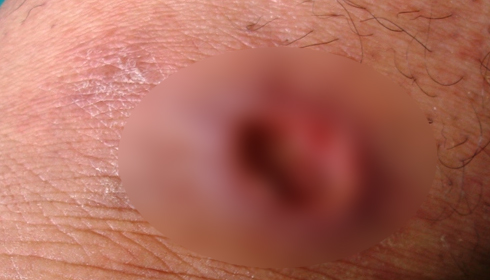
A new discovery gives poor countries hope for treating leishmaniasis, a killer disease
In a development that has the potential to usher in a paradigm, Professor Simona Stäger and her team of scientists have a huge discovery that could lead to a new way to treat visceral leishmaniasis, which is the most dangerous form of a tropical disease spreading around the world. This illness, known as "black fever," almost always results in death if left untreated. It's mostly a problem in poor countries like Bangladesh, Brazil, Ethiopia, India, Nepal, and Sudan, where people don't have easy access to health care.
Leishmania is a tiny parasite that causes leishmaniasis. An infected sand fly bite transmits the disease to humans. Visceral leishmaniasis is the worst form of the disease, which comes in three different forms. Every year, reports range from 700,000 to a million new cases worldwide.
Together with scientists from McGill University and the Institut national de la recherche scientifique (INRS), Professor Stäger's group has found a new immune system process that could help find a cure for visceral leishmaniasis. The journal Cell Reports wrote about their results.
A group of cells called CD4 T cells plays a big role in fighting off many diseases. These cells are very important for keeping the body safe from getting sick. But when someone has a chronic disease like leishmaniasis, their immune system is always working, which makes it hard to keep enough CD4 T cells that are functional.
A new chance to stay healthy
The researchers found that mice infected with the parasite that causes abdominal leishmaniasis exhibit a new group of CD4 T cells. These cells have certain characteristics that allow them to stay alive and work during the long-term stage of the disease.
Professor Stäger, an expert in infectious disease immunology, said, "We have found a new CD4 cell population in mice with visceral leishmaniasis." "These cells can transform into other types of cells that either attack the parasite or regulate the body's immune response."
Most of the time, CD4 T cells change into effector cells, which fight the virus directly. But when an illness lasts for a long time, the body may not have enough immature CD4 T cells to make these effector cells. The newly discovered cells can produce both effector and regulatory cells at any given time. This keeps the body from running out of immature CD4 T cells.
Sharada Swaminathan, the Ph.D. student and first author of the study, said, "We think this new cell population is what keeps the production of effector and regulatory cells going during the chronic stage of visceral leishmaniasis." "This allows the host to conserve its naive CD4+ T cells."
These new cells, which could replace the stressed, immature CD4+ T cells, could give the immune system a huge boost. "If we can direct this new lymphocyte population to become protective effector cells, the host could potentially eliminate the Leishmania parasite," said Dr. Stäger.
The discovery of similar cells in mice with other long-term illnesses, such as a virus or an intestine worm, is intriguing. It appears that the discovery could have effects on more than just leishmaniasis.
Stäger stated, "If our hypothesis is correct, we could use these cells to treat other chronic infections as well." This could be a big step forward for people in poor countries who have a lot of different chronic diseases and few ways to treat them.
Professor Stäger's team made a discovery that offers hope to millions of people suffering from visceral leishmaniasis and other long-term infections. Further studies on this new understanding of the immune system could potentially lead to life-saving treatments in some of the world's poorest regions.